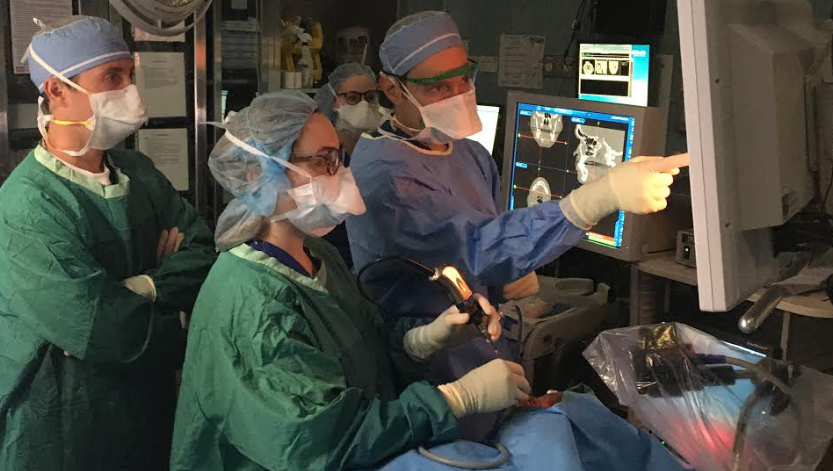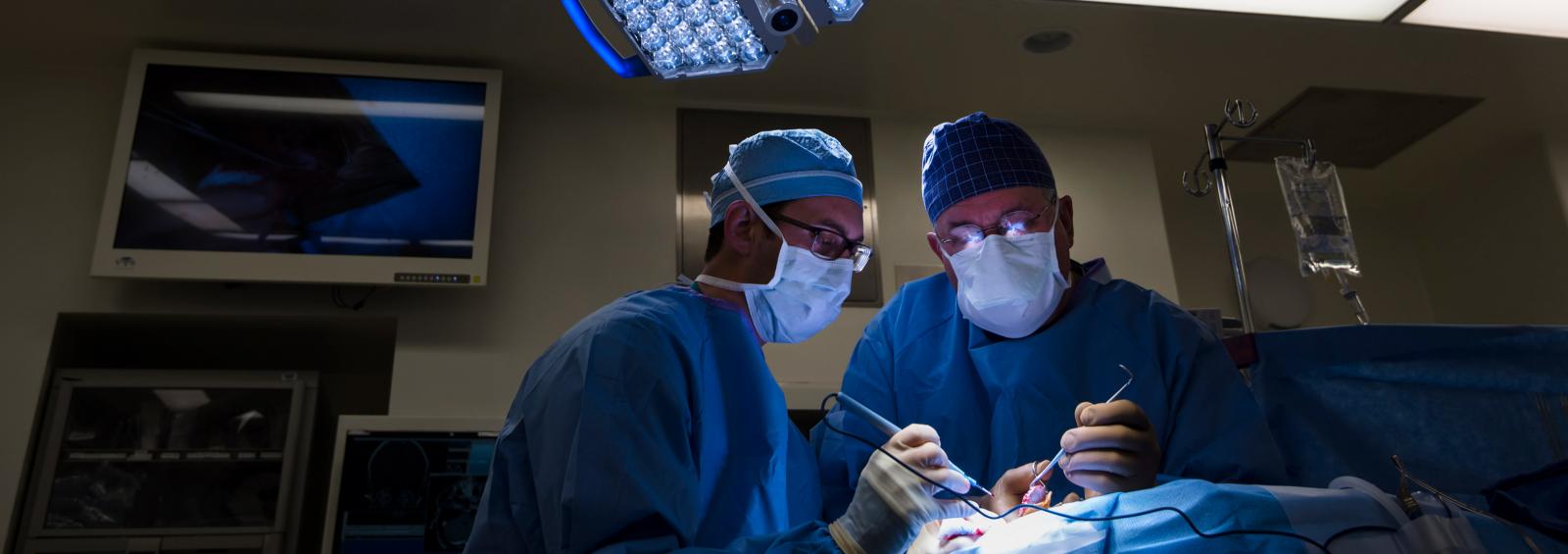Otolaryngology Explained: What Patients Should Know
Wiki Article
Discovering the Field of Otolaryngology: What to Expect When You Seek Advice From an ENT
Otolaryngology, generally referred to as ENT, incorporates the diagnosis and treatment of ear, nose, and throat conditions. ENT Doctor. For those experiencing related problems, seeking advice from an ENT specialist can give clarity and relief. Understanding what to anticipate during such appointments is crucial for efficient interaction and care. This summary will certainly detail key elements of the ENT experience, including common reasons for sees and the procedures associated with medical diagnosis and treatmentUnderstanding Otolaryngology: A Summary
Otolaryngology, typically referred to as ENT (Throat, nose, and ear) medication, is a customized branch of medication that concentrates on the medical diagnosis and treatment of problems impacting these crucial areas of the human body. This area includes a variety of conditions, consisting of those associated to hearing, equilibrium, breathing function, and speech. Otolaryngologists are trained to manage both clinical and surgical therapies, making use of sophisticated techniques and technologies. Their experience prolongs beyond typical ailments, addressing issues such as allergic reactions, sinus infections, and hearing loss. Additionally, they play an essential role in the administration of head and neck cancers cells, giving complete treatment customized to individual patient demands. Overall, otolaryngology stays important for preserving health and wellness and lifestyle in damaged people.Common Factors to See an ENT Specialist
Lots of people look for the knowledge of an ENT professional for a variety of reasons, mirroring the varied nature of problems that influence the nose, throat, and ear. Usual concerns consist of persistent sinus problems, which usually leads to consistent nasal congestion and face pain. Allergic reactions and their associated signs, such as itching and sneezing, additionally prompt visits to these specialists. Hearing loss, whether sudden or steady, is an additional substantial factor for assessment. Furthermore, individuals might look for assessment for throat conditions, including relentless hoarseness or ingesting difficulties. Sleep apnea, identified by disrupted breathing during sleep, is frequently dealt with by ENT specialists as well. Each of these conditions highlights the value of specialized care in handling complicated ENT-related wellness issues.Preparing for Your ENT Consultation
When preparing for an ENT appointment, it is vital to collect relevant details and take into consideration any details problems. Clients should compile a detailed case history, including previous ear, nose, or throat problems, surgical procedures, and existing medications. Recording signs and symptoms-- such as period, frequency, and severity-- can offer important insights for the ENT professional. In addition, people must prepare a listing of concerns they want to ask, making certain that all concerns are addressed during the browse through. Bringing along any appropriate medical records or test results can better help the ENT in comprehending the client's condition. Clients should verify their appointment details, including date, location, and time, to reduce any last-minute confusion. Proper preparation can enhance the effectiveness of the consultation and result in better outcomes.
What to Expect Throughout the Assessment
As the consultation starts, the patient can expect to engage in a complete discussion with the ENT expert about their symptoms and case history. The specialist will ask about the period, frequency, and severity of symptoms such as hearing loss, nasal congestion, or aching throat. Furthermore, the patient's previous clinical problems, medicines, and any pertinent family members history will certainly be evaluated, helping the expert in creating a total understanding of the person's health and wellness. The ENT may also inquire about lifestyle aspects, such as exposure to irritants or irritants. This open dialogue establishes a foundation for the appointment, ensuring that the patient's issues are dealt with and setting the phase for any type of necessary examinations or recommendations for treatment.Diagnostic Examinations and Procedures in Otolaryngology
A series of diagnostic examinations and procedures are important in otolaryngology to properly examine and identify conditions influencing the ear, throat, and nose. Common tests consist of audiometry, which gauges hearing function, and tympanometry, assessing center ear stress. Nasal endoscopy enables visualization of the nasal flows and sinuses, while laryngoscopy checks out the throat and singing cables. Imaging strategies, such as CT scans and MRIs, offer comprehensive views of head and neck structures. Allergic reaction testing may also be performed to recognize triggers for sinus or breathing problems. These diagnostic tools make it possible for ENT specialists to establish a thorough understanding of clients' problems, making sure tailored and reliable monitoring strategies. Correct diagnosis is necessary for successful therapy results in otolaryngology.Therapy Options Supplied by ENT Specialists
ENT professionals supply a selection of therapy options tailored to attend to particular conditions influencing the ear, nose, and throat. These therapies vary from traditional approaches, such as medicine and lifestyle modifications, to even more intrusive treatments. For instance, allergies may be handled with antihistamines or immunotherapy, while persistent sinus problems might require nasal corticosteroids or sinus surgery. For hearing loss, ENT specialists usually recommend listening device or surgical interventions like cochlear implants. In instances of throat disorders, choices can include speech treatment or procedures to eliminate blockages. Additionally, they might supply support for handling rest apnea, including the usage of CPAP gadgets or medical interventions. In general, the goal is to enhance patients' quality of life via individualized treatment and efficient therapy approaches.When to Look For Follow-Up Treatment With an ENT
Acknowledging when to seek follow-up treatment with an ENT specialist is crucial for taking care of ongoing symptoms or problems associated with ear, throat, and nose conditions (ENT surgery). Clients should take into consideration scheduling a follow-up consultation if symptoms continue regardless of first therapy, such as persistent ear discomfort, nasal congestion, or throat pain. Modifications in hearing, equilibrium issues, or unusual nasal discharge might likewise necessitate more evaluation. Furthermore, if an individual experiences side impacts from suggested medications or has gone through a surgery, follow-up care is necessary to keep track of recuperation and attend to any type of issues. Timely consultations can guarantee effective monitoring of conditions, stop potential difficulties, and give peace of mind regarding one's health. Looking for follow-up treatment promotes positive health and wellness management in otolaryngologyRegularly Asked Concerns
What Certifications Should I Search for in an ENT Expert?
When seeking an ENT professional, one need to try to find board accreditation, relevant experience, and solid individual evaluations. Furthermore, effective interaction abilities and a thoughtful technique can greatly boost the total treatment experience.Exactly how Do I Select the Right ENT for My Demands?
Picking the appropriate ENT specialist includes evaluating their certifications, experience, and patient testimonials. It is important to contemplate their interaction style and strategy to therapy, guaranteeing they straighten with the person's details health requirements and choices.Exist Any Kind Of Dangers Related To ENT Procedures?
The risks related to ENT procedures may consist of infection, bleeding, anesthesia issues, and potential damage to bordering frameworks. Individuals need to go over these risks with their medical professional to understand individual issues and assurance educated decisions.How Can I Take Care Of Anxiousness Before My ENT Appointment?
To take care of anxiousness prior to a consultation, individuals can exercise deep breathing workouts, envision favorable outcomes, prepare concerns in breakthrough, and look for assistance from friends or household, cultivating a feeling of peace of mind and peace.
What Should I Do if I Experience Adverse Effects From Therapy?
The individual ought to without delay report them to their healthcare company if side results from therapy happen. Changes to therapy or additional treatments might be necessary to guarantee security and effectiveness in handling their condition. As the examination begins, the individual can anticipate to engage in a detailed conversation with the ENT specialist regarding their signs and clinical history. These diagnostic tools allow ENT specialists to develop a complete understanding of individuals' problems, making certain tailored and efficient administration plans. ENT experts supply a variety of treatment alternatives tailored to resolve details problems affecting the nose, ear, and throat. When seeking an ENT expert, one need to look for board qualification, appropriate experience, and strong patient reviews. Selecting the ENT ideal ENT specialist includes reviewing their certifications, experience, and client reviewsReport this wiki page